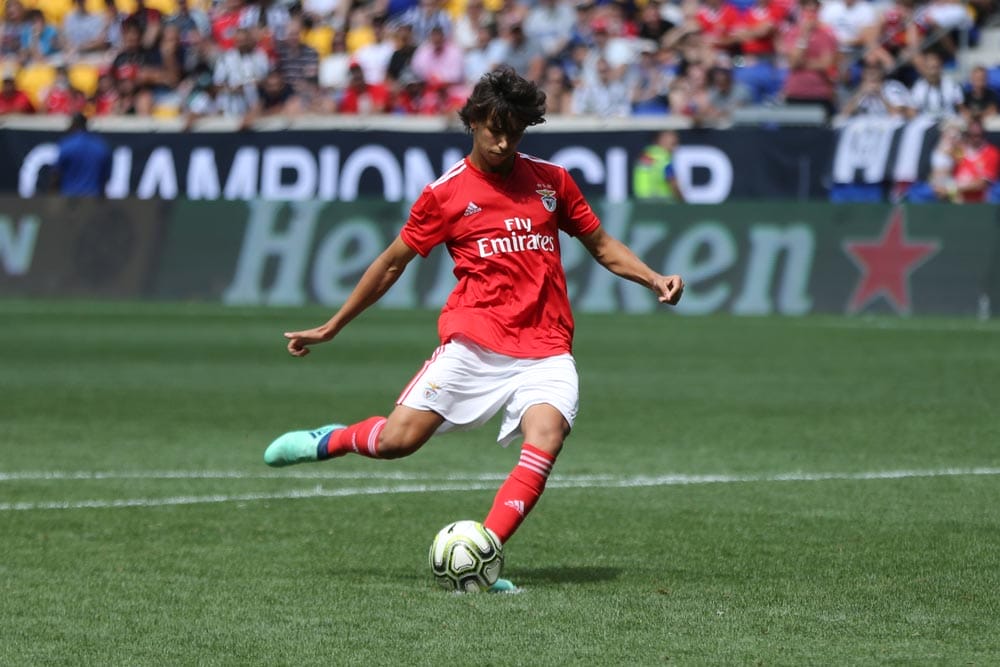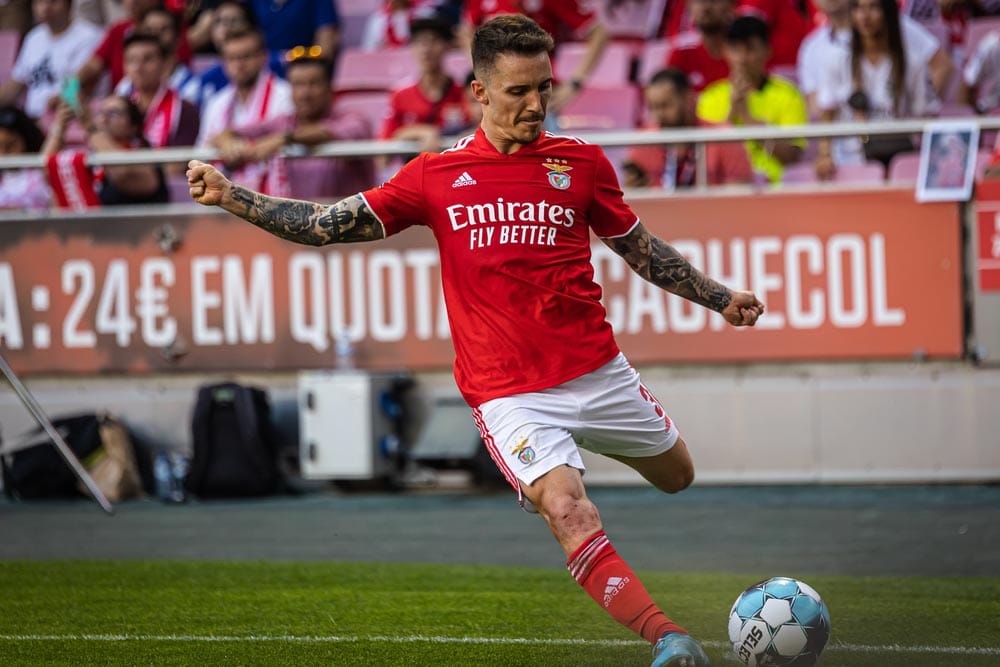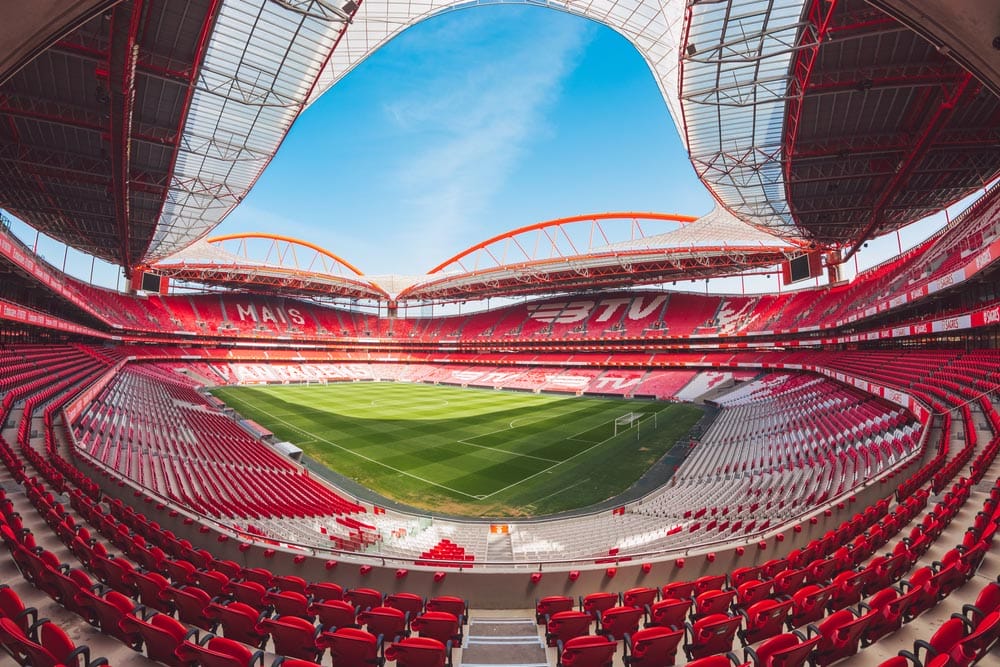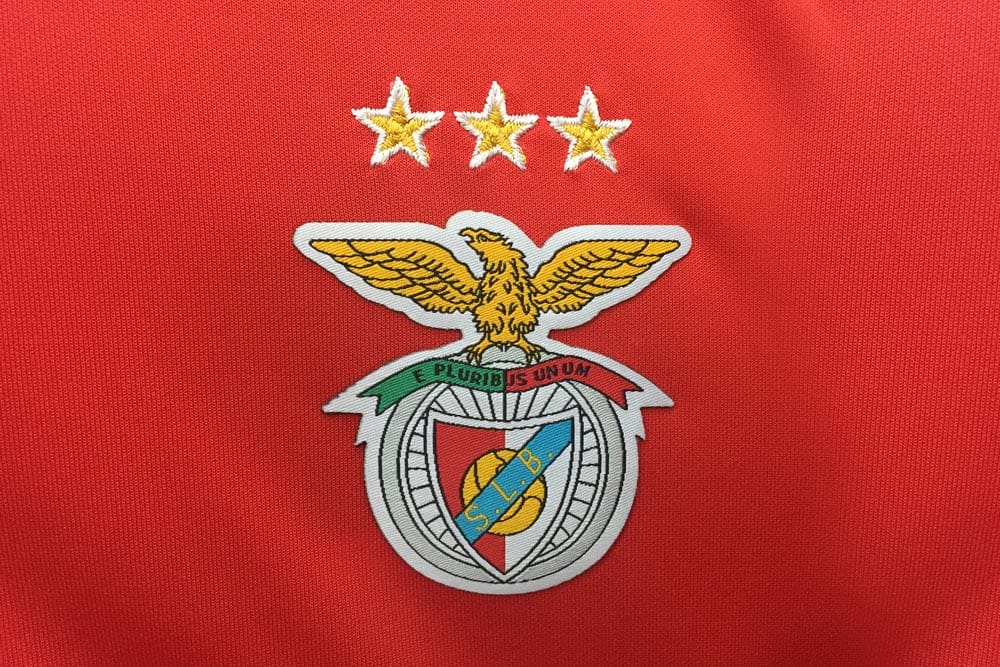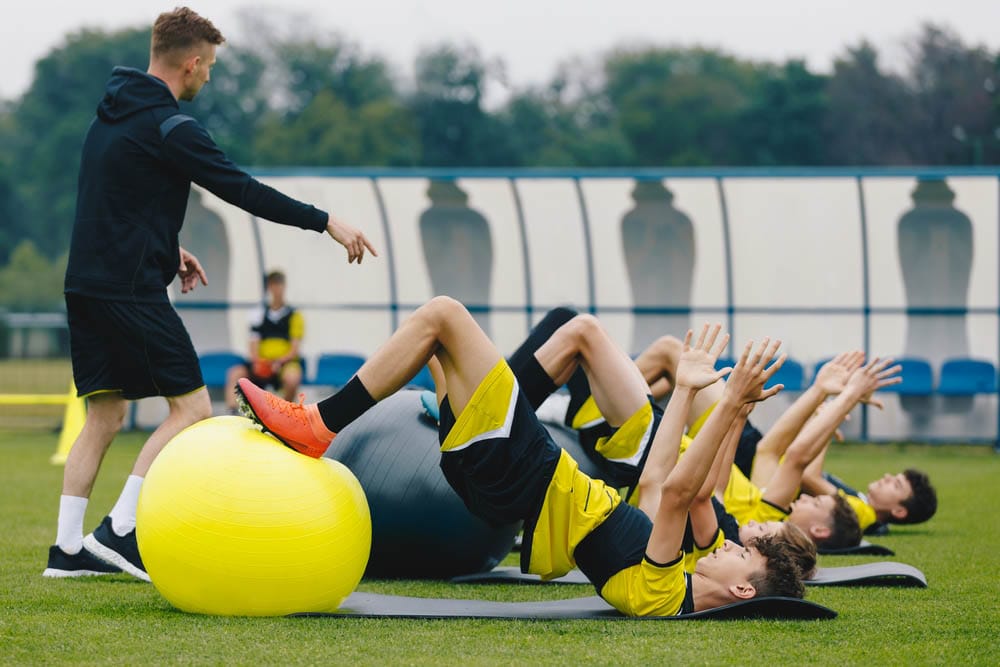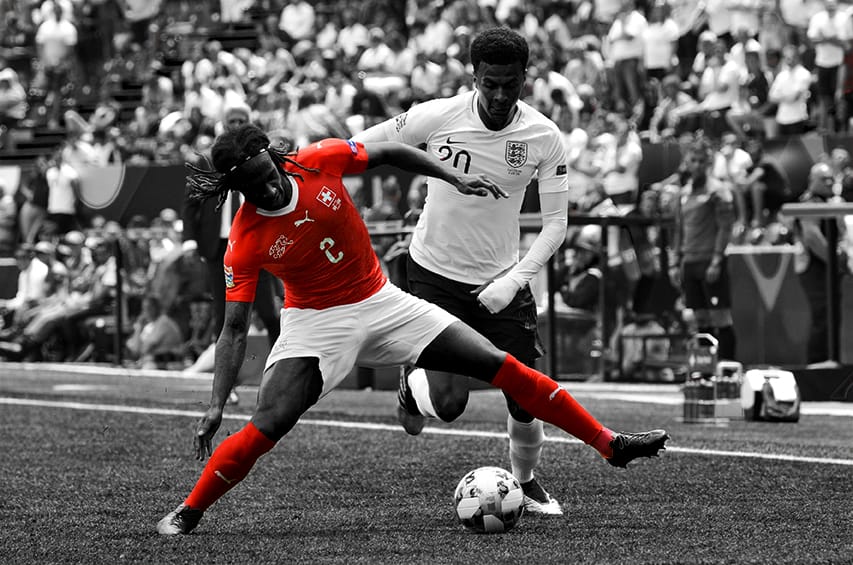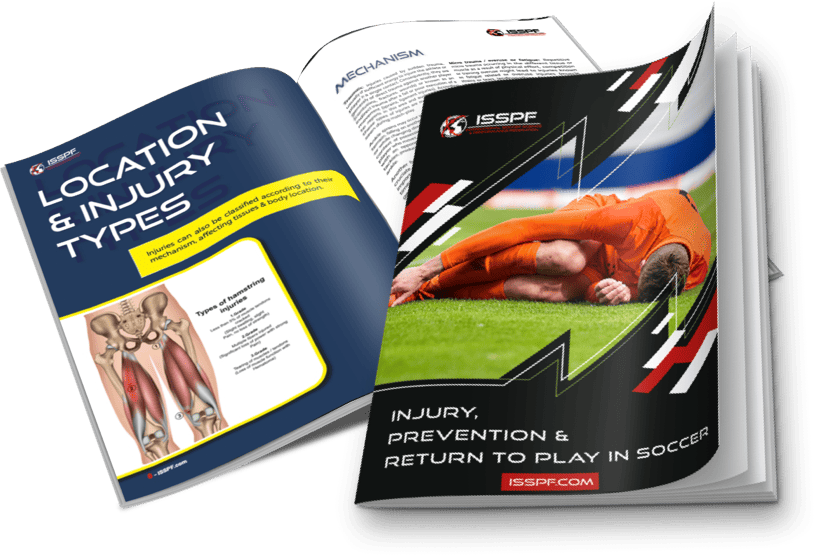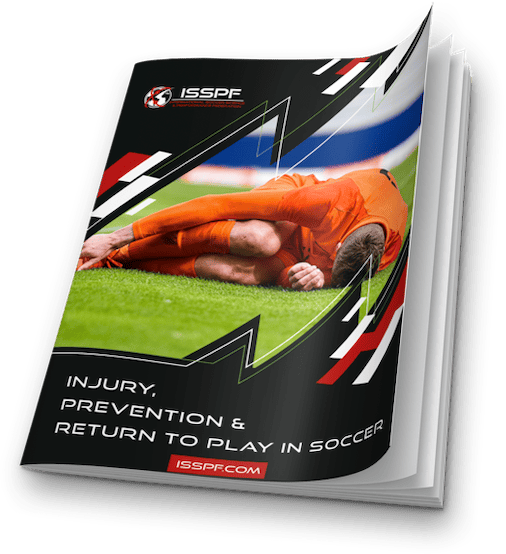In the world of football, few academies can boast a track record as impressive as that of Benfica SL’s youth development program.
Over the past decade, this Portuguese football giant has consistently produced an astounding array of talented players who have gone on to achieve greatness on both national and international stages. The success of Benfica SL Football Academy stands as a testament to their unwavering commitment to nurturing and harnessing the potential of young athletes.
At the heart of Benfica SL’s triumph lies a meticulously crafted, long-term development pathway.
The academy leaves no stone unturned in providing a conducive environment that facilitates the growth and refinement of emerging talents. This commitment to a comprehensive, methodical approach has proved instrumental in developing players who can compete at the highest levels of the game.
Led by the visionary Rodrigo Magalhaes, the technical coordinator of the academy, Benfica SL has honed its unique approach to talent development. Magalhaes envisions a future where Champions League glory is secured with a squad featuring four or five homegrown talents.
This dream is gradually becoming a reality, as the academy continues to churn out exceptional players year after year.
The journey for young hopefuls at Benfica SL begins with the crucial stage of talent identification and detection. Carefully chosen players are welcomed into the academy’s fold, signing up to embrace the club’s philosophy and program wholeheartedly. This early selection process is the first step on their path to greatness.
FREE GUIDE: YOUTH SOCCER ATHLETIC DEVELOPMENT
Download this FREE Guidebook and discover the techniques and strategies that elite coaches use to help young players achieve their full potential.
DOWNLOAD
FREE!
While genetics may play a role in a player’s potential, the academy firmly believes in the power of systematic training, talent identification, and longitudinal development programs. Benfica SL Football Academy ensures that each player receives the tools and opportunities needed to reach their full potential. The success of the academy’s methodology has attracted attention from prominent scientific and footballing circles.
Sport, exercise, and soccer science play vital roles in identifying, monitoring, and nurturing young talents, further enhancing the academy’s reputation as a hotbed for producing world-class players. Perhaps one of the most outstanding aspects of Benfica SL Football Academy is its consistent development of players.
Under the guidance of Rodrigo Magalhaes and the dedicated team of coaches, numerous young talents have risen through the ranks to secure coveted spots in the first team. The results of this relentless dedication are evident in the significant revenue generated from player transfers to other top clubs.
‘Hard Work Beats Talent when Talent doesn’t Work Hard’
As the academy continues to thrive, the dream of winning the UEFA Champions League with homegrown talent edges ever closer to reality.
The increasing number of players who make their way through the ranks and onto the grand stage of European football speaks volumes about the effectiveness of the Benfica SL Football Academy’s developmental process. Beyond technical development, the academy’s comprehensive approach encompasses individual programming and football science.
Players receive medical support, injury prevention strategies, physical development training, and psychological guidance. This well-rounded approach ensures that every aspect of their growth is catered to, setting them up for success on and off the pitch.
Unearthing talent marks just the initial step of a far more challenging journey. The true test lies in nurturing that talent to its absolute zenith.
This undertaking demands more than mere luck; it necessitates the meticulous crafting of a long-term development pathway within an ideal environment.
Sustaining this process year after year requires unwavering accountability for every detail, strategic planning, and the pursuit of success, especially within the fiercely competitive and results-driven world of elite professional soccer. SL Benfica stands as an outstanding exemplar of successful talent production, having garnered a remarkable track record in nurturing players over the past decade.
Rodrigo Magalhaes, the technical coordinator of Benfica’s esteemed academy, holds a grand vision where the Champions League victory features four or five homegrown talents contributing to the team’s triumph.
The initial crucial stage of talent development involves identifying and detecting promising young footballers. Many of these gifted players embark on a pathway leading to a professional football academy, where they wholeheartedly embrace the club’s program and philosophy.
Although research has made considerable strides in comprehending factors linked to playing success, it has yet to isolate any singular specific characteristic with absolute certainty.
While genetic components may influence sports performance, systematic training, talent identification, and longitudinal development programs remain instrumental factors in nurturing talent (Williams & Reilly, 2010).
Sport, exercise, and soccer science play pivotal roles in the process of identifying, monitoring, and nurturing gifted players to help them fully realize their potential. Within the confines of SL Benfica, the academy coordinator, Rodrigo Magalhaes, has witnessed a plethora of young talents rise through the ranks and eventually secure a place in the first team during his commendable 15-year tenure.
This consistent development of players has resulted in substantial revenue from transfers to other top clubs. The once-distant dream of securing a UEFA Champions
League victory with homegrown talent now appears more attainable as an increasing number of players make their way through the ranks of the academy.
Magalhaes strongly underscores the cost-effectiveness of developing players in comparison to acquiring established stars. Benfica’s recruitment process, combined with a comprehensive and well-thought-out methodology, has proven to be successful in nurturing these young talents, ultimately propelling them to the esteemed first team.
The club’s approach goes beyond mere technical development; it incorporates individual programming and football science that encompass medical support, injury prevention, physical development, and psychological elements. The initiation of the BenficaLAB over 15 years ago further solidifies the club’s position as an accomplished “football development factory,” effectively fine-tuning and complementing the technical aspects of the players’ growth.
Collaboration between the club and it’s players leads to a comprehensive plan tailored to address specific areas of improvement. This comprehensive approach encompasses refining technical skills, honing physical conditioning, and fostering a deep understanding of the game, all crucial components integrated into the players’ development program.
The Seixal-based football center of SL Benfica stands as a world-class facility, boasting top-notch resources such as pitches, dressing rooms, auditoriums for analysis and lectures, gymnasiums dedicated to strength and conditioning, injury prevention, and a cutting-edge testing lab.
The centers highlight, the “360S simulator,” has garnered considerable media attention, offering players the opportunity to fine-tune their techniques while undergoing analysis, nutritional evaluations, and psychological tests.
The ultimate mission of Benfica’s Youth Academy goes beyond developing technical skills; it prioritizes the personal growth of players of all ages.
The academy places a strong emphasis on preparing these talented individuals for seamless integration into the esteemed first team, while instilling essential values such as respect, responsibility, solidarity, justice, and tolerance.
To uphold and perpetuate this triumphant player development system, a steadfast long-term approach and an unwavering focus on providing the right environment are of paramount importance. The continuity of key personnel and adherence to the scientific methodology are vital components in ensuring the continued success of the renowned “developmental football factory” that is SL Benfica.
Through unyielding dedication, meticulous planning, and strict adherence to their proven process, SL Benfica continues to lead the way in producing top-tier footballing talents, establishing their legacy year after year.
In conclusion, the success of Benfica SL Football Academy is a story of commitment, dedication, and unwavering focus on providing the right environment for young talents to flourish. Through a combination of a carefully crafted methodology, collaboration between the club and its players, and top-notch resources, Benfica SL has undoubtedly cemented its legacy as a “football development factory.”
As the academy continues to produce top-tier footballing talents, it remains an inspiration for other clubs seeking to emulate its remarkable achievements.
Intermediate Soccer Psychology Course
Introducing the ISSPF Certificate in Psychology & Mental Skills Training, the ultimate online sport psychology course that offers unparalleled learning opportunities.
This program not only allows you to learn from world leaders in the field but also offers a comprehensive understanding of development and application within team sports. If you are a coach, practitioner, performance, or medical staff member, this course will equip you to enhance your role and guidance with utmost effectiveness.
Regardless of your job or role, the knowledge, skills, and components covered in this course are essential for competing and progressing to the next level.
Elite players themselves emphasize the significance of sport science and medical support staff, making the continued education in this area crucial for promoting development in football or soccer science.
The demand for sport psychologists and mental skills training specialists with a focus on football science is constantly growing.
Coaches, students, and independent learners with coaching badges, sport science degrees, and qualifications are often left pondering how to secure a job in football and what specialization in sport science to pursue. The role of a sport psychologist becomes a prominent question in this pursuit.
ISSPF Faculty members have designed bespoke courses that cater to sport science students, individuals already working within the game, and other football science enthusiasts eager to further develop their expertise in this area.
The ISSPF expertly endorsed and accredited Online Football Psychology & Mental Skills Training course provides valuable exposure to football science research and practical examples used across various levels of team sports.
Now, let’s delve into why this course holds immense importance:
- Understanding the key components that drive coaches, players, and athletes to succeed is paramount.
- Developing strategies to prepare individuals for both training and competitive games from a psychological perspective greatly benefits coaches and practitioners.
- Coaches and performance practitioners can make significant strides in this often under-applied area of coaching and sport science.
- The course is designed specifically to enhance the coaching and performance process.
- All practitioners and coaches can further benefit themselves and their players by acquiring in-depth knowledge of applied psychology and mental skills training development.
- Gaining this understanding may lead to improved decision-making through a better appreciation of psychological and mental skill principles.
Now, let’s explore the target audience for this transformative course:
- Individuals responsible for training and coaching both individual athletes and team sports.
- Individuals with a keen interest in expanding their knowledge in the preparation, training, and development of individual athletes or team sports.
- Sport psychologists who are eager to delve deeper into the realms of football science and football training.
Enrol in the ISSPF Intermediate Certificate in Psychology & Mental Skills Training, and take a significant step towards mastering the psychological aspect of sports and optimizing your coaching and performance abilities. With our expertly designed courses, you’ll gain valuable insights and practical knowledge that will set you apart in the competitive world of sports, soccer coaching and performance.
What Does This Course Cover?
Outline of the Online Intermediate ISSPF Sport Psychology & Mental Skills course:
1. Motivational climate within a performance environment
Delivered by Sarah Murray (Brighton and Hove Albion FC)
2. Pressurised environments: Decision making processes
Delivered by Daniel Dymond (University of Queensland, Australia)
3. Emotional intelligence within the soccer environment
Delivered by Thomas Pratl (UEFA Pro Licence)
4. Player Motivation: Goal Setting in Soccer
Delivered by Jorge David Mora Anzola (Millionaires CF, Colombia)
5. Resilience in soccer: Dealing with adversity
Delivered by Dr. Tanja Ecken (Bundesliga specialist, Germany)
6. Guiding player development in soccer: The role of the coach
Delivered by Martin Macháček (SK Slavia Praha, Czech Republic)
7. Understanding different soccer personalities: Coach & player integration
Delivered by Sion Rowlands (Leicester City FC)
8. Talent identification: Observation & assessment in training & competition
Delivered by Pedro Assis (FC Porto)
9. Soccer specific skill acquisition: Long term player development pathway
Delivered by Jorge David Mora Anzola (Millionaires CF, Colombia)
10. Leadership and Culture for High Performance Soccer
Delivered by Max Lankheit (San Jose Earthquakes, Major League Soccer)
Share this article:

